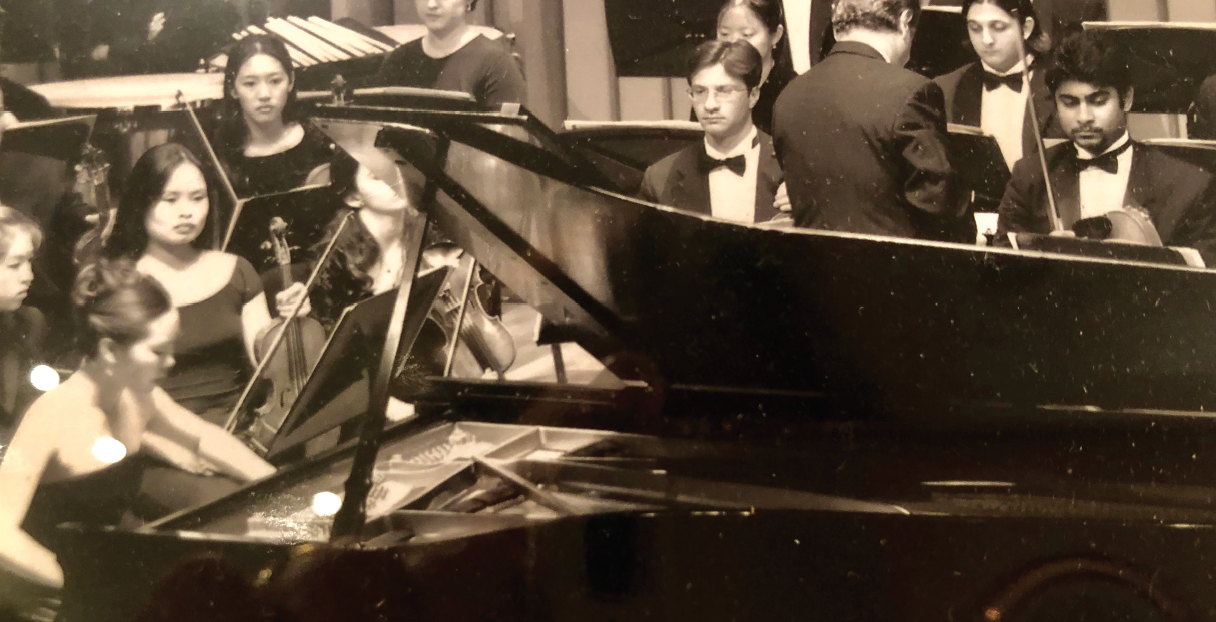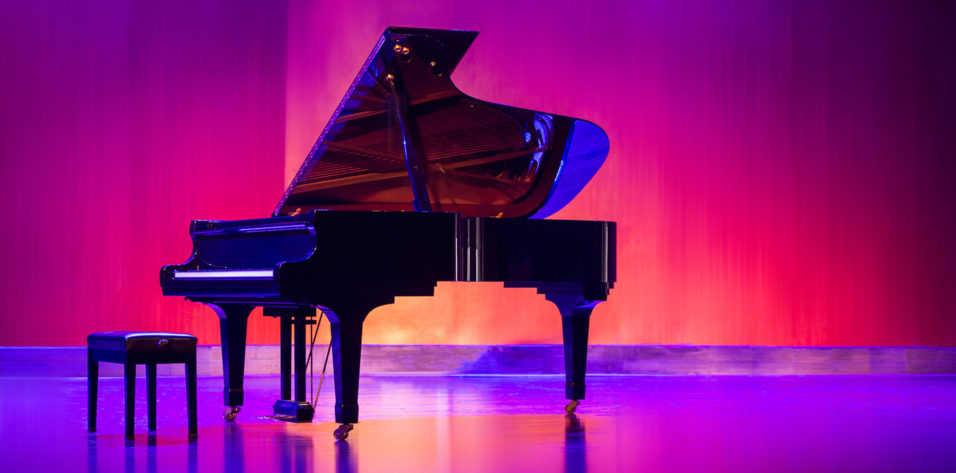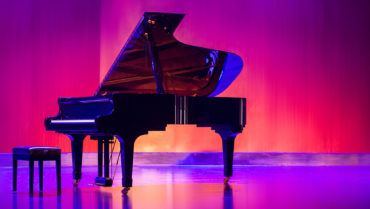
My most memorable experience at the Jefferson Symphony Orchestra’s Young Artists International Competition in Colorado was not on stage but in the ER a couple of days after the final round of the competition. I had awakened the day after the competition with excruciating pain in my left eye. After 24 hours of denial, I decided it was time to go to the ER, where I was quickly diagnosed with a vision-threatening corneal ulcer from soft contact lens over-wear. During this late-night encounter, I was told by a bleary-eyed cornea fellow that I would require a cornea transplant to see out of the eye again. It was at that frightening moment that I realized how much I took my vision for granted.
The Corneal Ulcer
Before that harrowing night, I was a concert pianist competing at the international level and studying music in college (Figure). I had spent much of my life trying to win a top prize at a high-profile competition to secure a future in a very competitive field and avoid becoming yet another starving artist. Although I had made it to the final round of the Jefferson competition, I was disappointed not to bring home a prize. On top of that, I had multiple midterms, essays, and projects for my college classes that I had been putting off for the competition, and I decided to bury my worries by getting this work done.

Figure. Michele Lee, MD, performing Prokofiev’s Piano Concerto No. 3 with the American Youth Symphony.
After a red-eye flight home from the competition and an all-nighter catching up on schoolwork (with soft contact lenses in my eyes), I noticed that my left eye was becoming quite painful. Over-the-counter tetrahydrozoline HCl did not seem to help. Taking off my contact lens made it seem worse. I decided to power through what I assumed to be a bad episode of dry eye and went to class the next day. Throughout the day, however, I noticed that my eye was becoming increasingly painful, and I had a difficult time getting work done and falling asleep. By 2 am, the pain was excruciating enough that, with the help of a friend, I made my way to the ER.
Initially, my vision was poor, and the eye pain persisted. With antibiotics and steroid drops, however, my vision slowly began to recover and, miraculously, at my 1-year follow-up with the cornea specialist, my vision could be corrected to 20/20 in both eyes with just the faintest scar. I was greatly relieved, thankful, and in awe of the power of medicine. In my eyes, my ophthalmologist was my superhero and was the inspiration for me to change the course of my life. Compared with the prospect of teaching piano to school children and becoming a starving artist, the ability to save vision and cure eye disease seemed like an incredible job and a no-brainer.
From Music to Medicine
After that happy ending, I quickly pivoted from a career in music to one in medicine. I now find myself on the other side of the slit lamp as a cornea specialist. Having had the experience of a corneal ulcer helps me to empathize with my patients. Corneal diseases are usually painful, given how highly innervated this layer of the eye is. Knowing this motivates me to work harder. I also understand that the stakes are extremely high because of the patient’s potential for excellent vision. I find that the more I learn, understand, and immerse myself in corneal disease, the more difficult and challenging the field becomes.
There are many similarities between music and ophthalmology. Ophthalmic surgery is a combination of technique and art. Just as in music, technique is important, and practice makes perfect. To be a great surgeon, however, you also must have the ability to deal with surprising findings in clinic or complications in the OR—this is the art of medicine. The ability to improvise during my piano days has undoubtedly helped me in the OR and clinic settings.
Rediscovering Music
I begrudgingly put music on the back burner for years during medical school and ophthalmology training, but I recently had the opportunity to perform at my cornea fellowship graduation. Even during a busy time in a very busy fellowship, it was refreshing to use a different part of my brain and not to think about corneal melts or Descemet membrane endothelial keratoplasty and focus instead on making beautiful music. That experience helped me to remember why I had previously devoted my life to music—my first love—and to realize that it is more than possible to have both music and ophthalmology in my life.
I used to enjoy playing the piano as a competitive endeavor; now, I enjoy it even more as a way to help me balance my life along with my other hobbies. Having interests and efforts outside of medicine helps me to stay refreshed and gives me the ability to live my best life.




